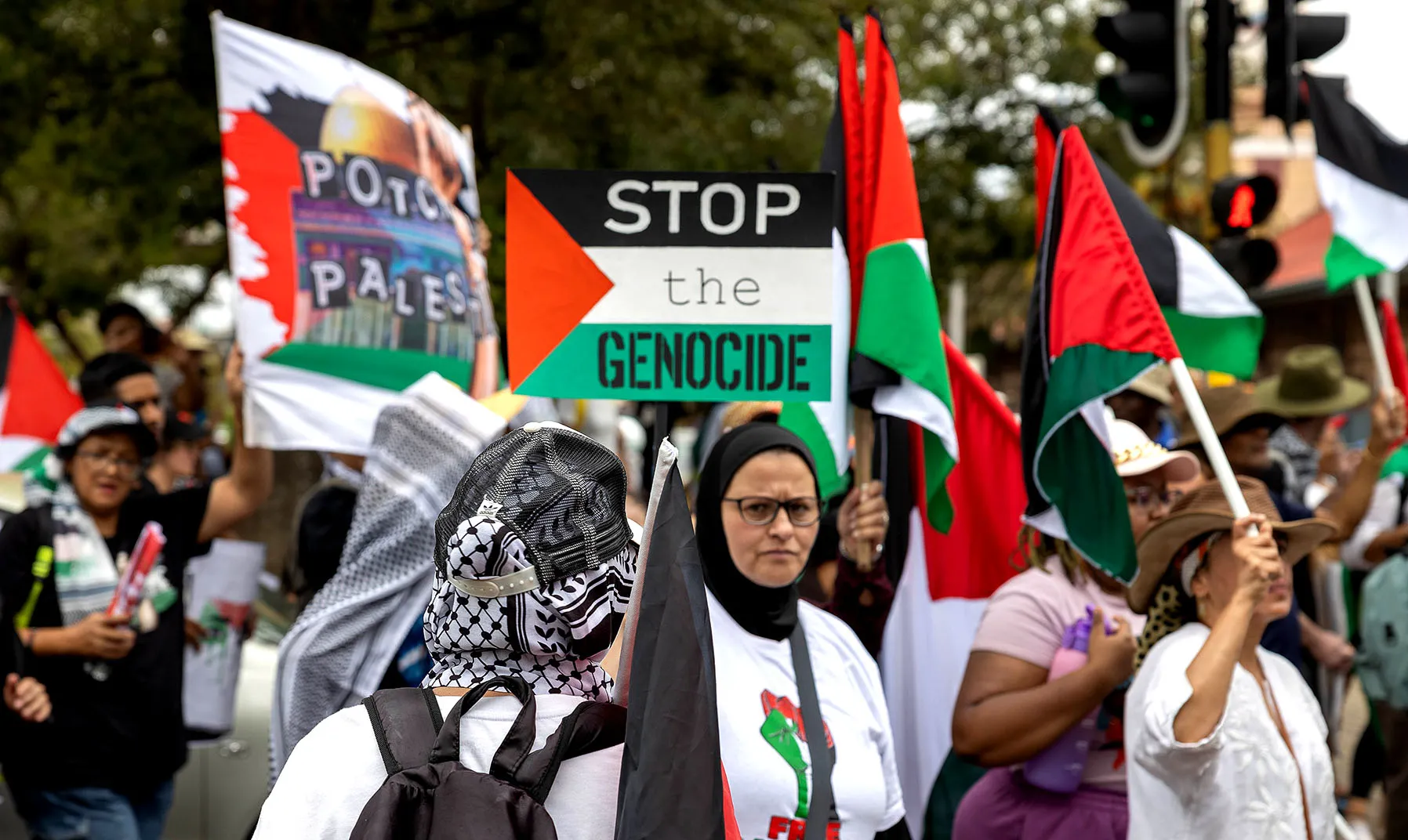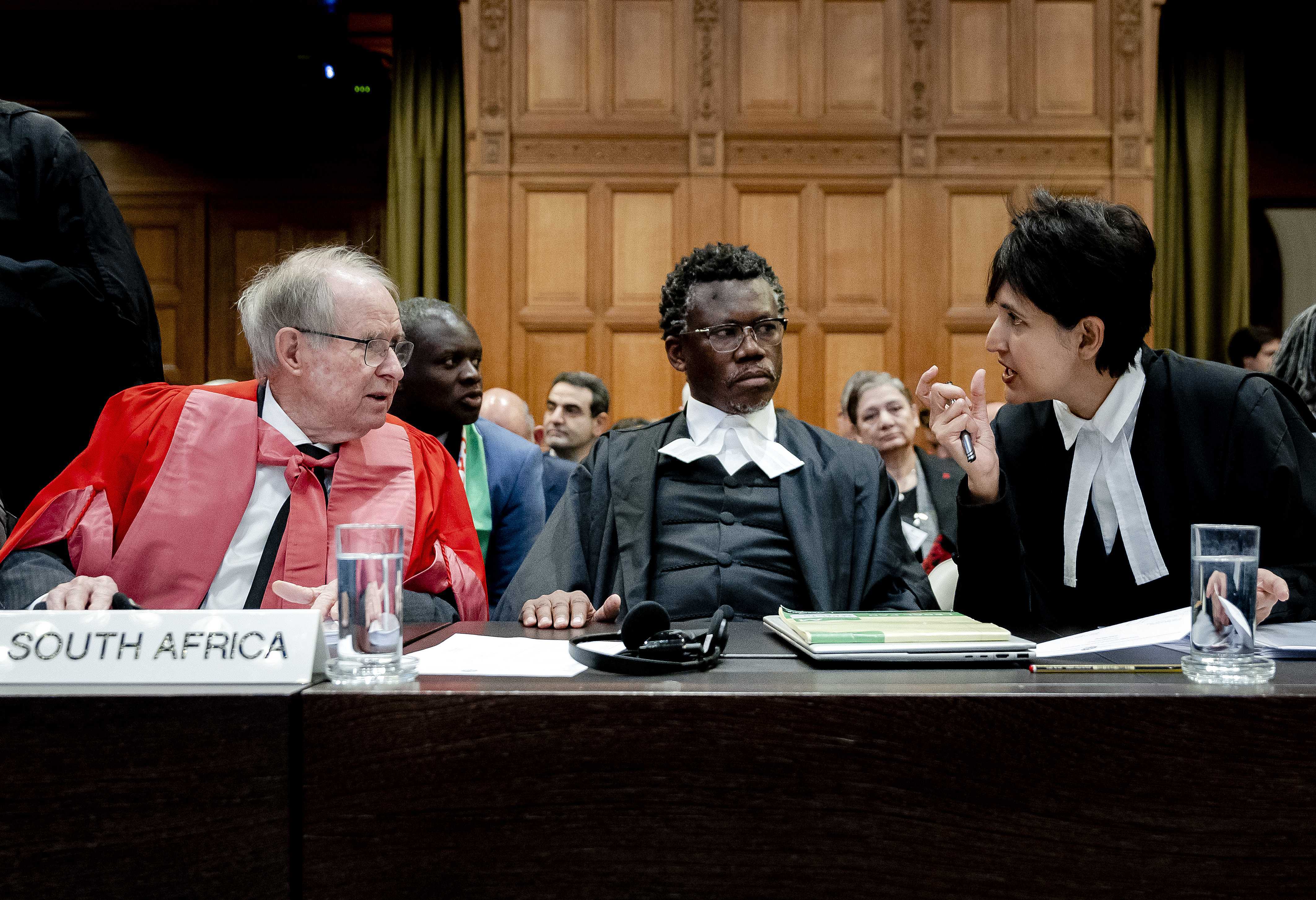On 11 January 2024, South Africa hauled Israel before the International Court of Justice (ICJ) on the charge of violating the 1948 Genocide Convention. This was for Israel’s indiscriminate bombing and siege of Gaza following the deadly 7 October attack on Israel by Hamas which claimed 1,200 Israeli lives.
More than 25,000 Palestinians, at least half of them children, have reportedly been killed in Israeli retaliatory attacks. The siege has led to a humanitarian crisis, as civilians struggle to get food and have no access to hospitals, which have been all but totally destroyed.
The South African team of lawyers pleaded with the court to impose provisional measures — temporary orders to stop irreparable harm, including an immediate ceasefire — while the court considers the merits of the case.
Read more in Daily Maverick: How South Africa seeks an order to stop the carnage in Gaza and prevent a genocide
As observers of South Africa’s international relations, we believe this move to be the high-water mark in the country’s foreign policy since the end of apartheid in 1994.
South Africa’s liberation is sometimes portrayed as the last act of 20th century decolonisation: the crowning moment of “Third World” solidarity. The country’s new approach to foreign policy symbolised the hopes of countries that struggled for freedom. The (now governing) ANC’s discussion document of 1994 stated: a democratic South Africa will be in solidarity with all those whose struggle continues.
From Mandela to Ramaphosa
Nelson Mandela, the first president of democratic South Africa, advocated for human rights, sometimes even at the expense of African partners. That early promise was progressively whittled down.
In 1995, for example, Mandela pleaded with then Nigerian military head of state Sani Abacha to spare the lives of Ken Saro-Wiwa and eight other Ogoni activists. Critics of the Nigerian government’s failure to act against foreign oil companies causing environmental damage, they were accused of murdering Ogoni chiefs. Mandela’s pleas fell on deaf ears and they were executed.
In his scathing response, Mandela called for Nigeria to be expelled from the Non-Aligned Movement and the Commonwealth until it established democratic rule. South Africa also recalled its High Commissioner to Lagos for consultations.
From the late 1990s, under the succeeding presidencies of Thabo Mbeki, Jacob Zuma and Cyril Ramaphosa, the South African government has often supported authoritarian regimes in the global south, often in repudiation of people’s struggles. Examples are China, Russia, Sudan and Zimbabwe.
South African foreign policy is often described as being inconsistent, unclear and insincere.
Palestine remains the single issue on which South Africa’s support for a people’s struggle has been unquestionably consistent.
Solidarity with Palestine
During the Cold War, the apartheid South African and Israeli states collaborated on military, diplomatic and nuclear issues. The liberation movements of these two countries — namely the Palestinian Liberation Organisation (PLO) and the African National Congress (ANC) — practised an alternative form of internationalism. This was subversive and inspired by people’s solidarity in the Third World.
In 1974, when the PLO leader Yasser Arafat addressed the United Nations General Assembly, the first liberation leader to do so, he called for the same right to be extended to other liberation movements. Arafat used the occasion to denounce the apartheid regime with the same vehemence as he used to criticise Israel.
Two years later, the then ANC president, Oliver Tambo, stood before the same body and both applauded Arafat’s leadership on this matter and expressed “unswerving solidarity” with the Palestinians.
 International day of solidarity march from Mary Fitzgerald Square to Nelson Mandela Bridge on November 29, 2023 in Johannesburg, South Africa. (Photo: Gallo Images / Papi Morake)
International day of solidarity march from Mary Fitzgerald Square to Nelson Mandela Bridge on November 29, 2023 in Johannesburg, South Africa. (Photo: Gallo Images / Papi Morake)
In addition to diplomatic support, the two movements shared resistance tactics.
Arafat’s own faction within the PLO, Fatah, assisted the ANC and other resistance movements to acquire training and arms. Importantly, the relations between Tambo and Arafat were based on trust. In 1988, Tambo asked Arafat to help with securing funding from the Middle Eastern countries and requested the PLO to become a financial trustee of funds from that region.
The lodestar
This consistency of approach and support was reflected in South Africa’s case before the ICJ. It has put the promise of liberation back into South Africa’s national consciousness. This imaginative initiative reveals a sense of clarity that the country’s foreign policy has lacked due to its inconsistencies which resulted in contradictory choices in the 21st century.
It stays true to the founding principles of the post-apartheid polity. Not only was this needed in the country’s approach to international affairs, but it is vitally important to restore its self-image.
South Africa’s team at The Hague included opponents of the ANC government. As they argued the legal and ethical case against Israel’s genocidal ambitions, their country watched in hope.
Could its international relations finally live up to the high ideals the country set for itself when apartheid ended?
South Africa’s appearance before the ICJ is an affirmation of the moral compass that the ANC government has lost. DM
This article was first published in The Conversation.
Peter Vale is Senior Research Fellow at the Centre for the Advancement of Scholarship, University of Pretoria. Vineet Thakur is Assistant Professor of International Relations at Leiden University.
Disclosure statement: The authors do not work for, consult, own shares in or receive funding from any company or organisation that would benefit from this article, and have disclosed no relevant affiliations beyond their academic appointment.
Read another perspective here: South Africa's divisive ICJ case against Israel has already altered its foreign policy space.




 International day of solidarity march from Mary Fitzgerald Square to Nelson Mandela Bridge on November 29, 2023 in Johannesburg, South Africa. (Photo: Gallo Images / Papi Morake)
International day of solidarity march from Mary Fitzgerald Square to Nelson Mandela Bridge on November 29, 2023 in Johannesburg, South Africa. (Photo: Gallo Images / Papi Morake)